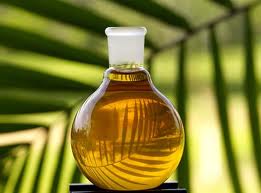
 After soy the palm oil is the second most traded vegetable oil crop in the world and is still mostly used in the manufacture of food products and for sure is found in one in ten products sold in UK supermarkets.
After soy the palm oil is the second most traded vegetable oil crop in the world and is still mostly used in the manufacture of food products and for sure is found in one in ten products sold in UK supermarkets.
Palm oil is now starting to be used as an ingredient in biodiesel and as a biofuel to be burnt in power stations to produce electricity. This is a new market for palm oil which has the potential to dramatically increase global demand for this product. Over 90% of the world’s palm oil exports are produced inMalaysiaandIndonesia.
Recently palm oil plantations that meet environment standards and do not contribute to deforestation are prepared to be developed by Malaysian government. According toMalaysia’s Business Times and picked up by Reuters Agency, the Malaysian Commodities Minister Mr. Bernard Dompok underlined that government is at the “preliminary stage” of developing its own sustainability standard for palm oil producers. He explained that this plan is moving forward and added that “we will go ahead [with plans for a new certification scheme] because the Roundtable on Sustainable Palm Oil -RSPO keeps on changing its goal posts on how to produce sustainable palm oil.”
This news is likely to spark disquiet among green groups, many of which have supported the RSPO and fear that rival certification schemes will impose less demanding standards on plantations accused of fuelling deforestation in countries such asMalaysiaandIndonesia. Now both of these two countries are working on their own environment standards. The palm oil industry signaled that the new Malaysian government standards would still require plantations to protect wildlife, such as the orangutan, and avoid deforestation.
Green groups are likely to remain concerned that the emergence of competitive standards could make it harder to ensure that palm oil has been sourced from plantations that adhere to demanding environmental standards. Even if the demand for palm oil as a biofuel or for biomass is directed at sustainably certified sources, when such a system is fully established, this new demand is highly likely to displace much of the current global demand elsewhere towards destructive plantation development, especially inIndonesia.
We have to recognize that this source is very limited and wouldn’t be enough to support any large scale biofuel plants or power stations. We also hope that the biofuel is only an alternative among other sources.



